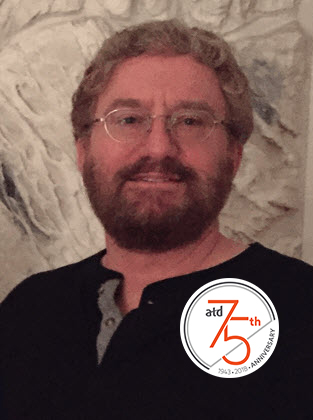ATD Blog
"Take on New Projects"
Published Thu Sep 13 2018


The worldwide talent development community is diverse. Our members bring a wealth of experience and insight to their work. We're spotlighting their stories.
Scott Fenton has been a member of ATD since 2000. Here's his story in his own words.
Tell us a little bit about yourself.
I work in the Talent Development Department at Toyota Motor North America R&D Center in Michigan. I am responsible for the business skills and leadership curriculums. I also developed the train-the-trainer process and conduct the training for SMEs, as well as conduct Toyota Way training. My instructional design role includes needs assessment and course design for in-class training. Other roles include facilitating management succession planning and team member career planning processes.
What are your personal and/or professional goals?
To fully integrate neuroscience, behavioral, and social science theory and methods into our talent development processes. I want to continue to progress in my career to be in a position to be the leader of TD strategy based on those theories and methods.
What challenges have you had to overcome in your career?
The biggest challenge was finishing undergrad and then grad school while working full time and being a parent to three young children. That experience prepared me for the demands of my previous HR jobs and current talent development job.
What’s the most valuable thing you’ve gained or experienced during your membership with ATD?
ATD is an excellent resource for professional development. The workshops and seminars as well as books and articles are very valuable.
Could you share any professional tips, specific to talent development, that you have picked up along the way?
Think of yourself as a performance professional, not a training professional. Talent development must be based on the needs of employees and the company. So focus on the work performance. This is the great advice of Harold Stolovitch, PhD, author of Telling Ain't Training and Training Ain't Performance.
What’s a common misconception you see when it comes to talent development?
A misperception is that talent development can "fix people." We are not psychologists, though we do use (or should be using) neuroscience, behavioral, and social science methodology. Talent development can diagnose performance issues, then provide courses, programs, and development opportunities to build knowledge and skills that improve work performance. But we cannot, nor should we, try to fix personality problems.
Do you have any advice for people looking to further their careers?
Continually develop and rotate into different roles or take on new projects over the years to build TD knowledge and skill depth and breadth. If you are not in an organization that values employee career development, find one that is.
What is your personal definition of talent development?
This is more of a mission statement than a definition—TD assesses performance issues, conducts training needs analysis, develops resources, and provides programs for employees to grow continuously and meet business objectives.
How do you stay motivated?
I focus on the customer, the learners. And think about how I can continue to improve my capability to have a positive impact.
How do you find meaning in your work?
Team member feedback on the usefulness of the training and development programs we provide is key. That positive feedback and data that shows success keeps me motivated.
You've Reached ATD Member-only Content
Become an ATD member to continue
Already a member?Sign In
